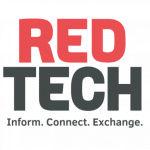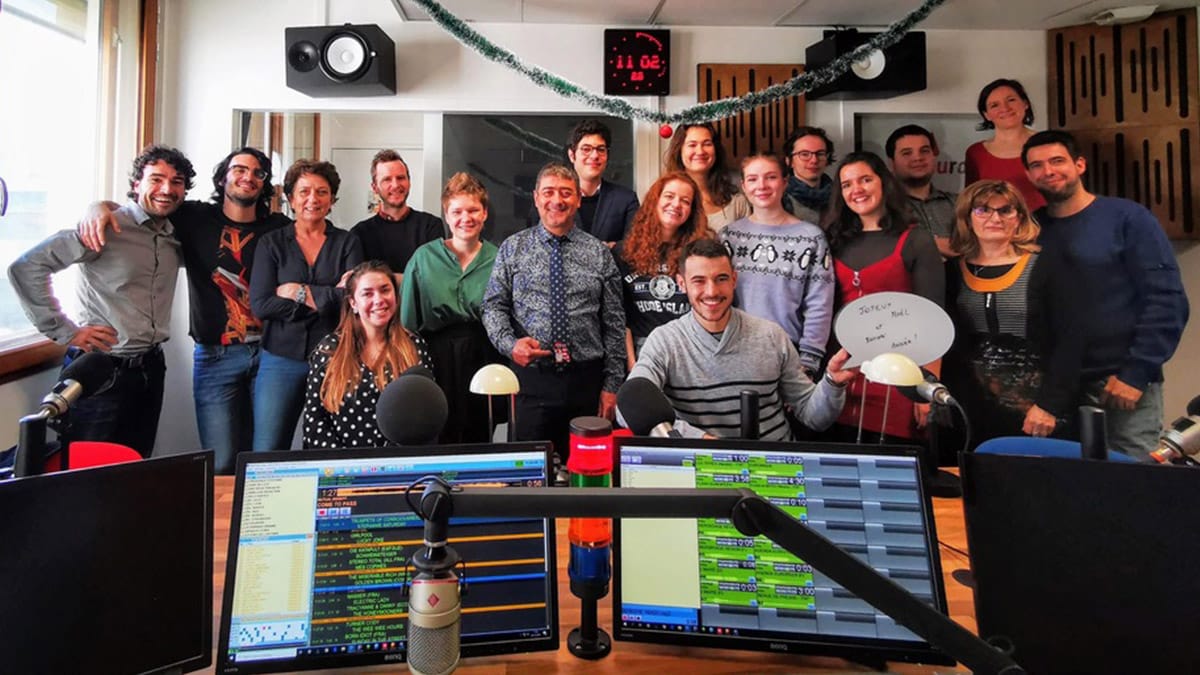NANTES, France — Independent community radio station Euradio focuses on European citizens’ lives and aspirations. Located in Nantes, Euradio began broadcasting on FM and via the internet in 2007. The station then gradually added DAB+ services. In 2018, it began transmitting in Lille, Lyon and Strasbourg; in 2019, in La Roche-sur-Yon, Le Havre, Nantes, Pornic, Rouen, Saint-Nazaire; and in 2020, in Paris, Marseille, Nice, Bordeaux and Toulouse.
The station also expects to receive a DAB+ license for Brussels as well as for other French cities including Tours, Orléans, Rennes and Angers.
Its streaming service and podcast platforms are mainly dedicated to reporting on local Europeans’ life and conveying this local approach to European institutions and Members of the European Parliament.
In addition to FSER [Fonds de Soutien à l’Expression Radiophonique Locale] grants, Euradio benefits from the financial support of Nantes and of other regional authorities for its local stations in Lille, Strasbourg, etc.
A European Perspective
Euradio relies on five full-time employees, including its director Laurence Aubron, who manages the station, and Laurent Pététin, technical and production manager, who contributed to launching the station and managed its transition to DAB+.
Each year, the station also welcomes four “civic service volunteers” to help with various tasks, like news production, technical aspects and programming.
In addition, some 40 volunteers, primarily located in Brussels and Paris, contribute once a month to the production of the station’s magazines. A few consultants from various European countries are also involved in content editing and production of musical programs.
The station broadcasts in French as well as in other European languages, mainly English, but also German and Spanish. When airing in less familiar European languages, it publishes a summary and a translation of the program on its website in French.
Since 2007, the station has been organizing five-month long radio courses to train volunteers from different countries to produce field reports, podcasts and programs from Euradio’s hub.
Technical Infrastructure
Until 2017, “we operated the station at a local radio pace, then when we began adding other local stations, we decided to keep our headend in Nantes where the network converges,” explained Pététin.
“We had to review the entire server and broadcasting infrastructure and opted for Open Radio playout software from Audio Research, and also a transmission link from Worldcast Systems. Philippe Codogno, sales manager with WorldCast Systems, suggested we implement the APT IP Codec, and that solution perfectly met our needs. It essentially sends an audio signal from our local radios to our Nantes headend, where we manage all the incoming streams,” Pététin added.
“We have a small center with five WorldCast Systems racks, and the Sound4 Impact audio processor for DAB+, which sculpts our sound.”
Essential Tools
Euradio uses several WorldCast Systems units, including a legacy Ecreso transmitter as well as the new Audemat RDS encoder, which features the latest software updates, including RDS2 compatibility, a future RDS standard.
“APT IP codecs are compact, save us space, and we can rely on them for reliable, low latency transmission links,” said Pététin.
For its two studios, the station chose AEQ mixers. The main studio, with five mics plus a control room mic, is dedicated to live broadcasts and the recording of programs with volunteers. It is fitted with an AEQ Forum IP digital audio mixer designed for on-air broadcast. The mixer “incorporates all basic features, is modular and easy to configure,” added Pététin.
The second studio, which houses three mics, is used to record musical programs with artists. It’s equipped with an eight-channel fixed-configuration Capitol IP AEQ digital audio mixer that offers multiple input options, including four mic/lines, 12 analog, four digital stereo AES/EBU (AES3), two digital stereo USB, two optional telephone lines, and optional digital multi-channel audio links and 16 AoIP channels over two Ethernet connectors. The console and broadcast tools are connected with the Dante protocol, Pététin explained.
“We know we can rely on AEQ products, and we have a good relationship with the AEQ team and Bruno Guers, CEO of Eurocom, AEQ’s French distributor,” he added.
Euradio’s other gear includes AETA’s Scoop 5 S, Scoopy+ S and ScoopTeam codecs, CreaCast monitoring tools and a Rami AUF600 digital audio mixer.
Euradio’s transmitter is located on “Sillon de Bretagne,” a large pylon to the northwest of Nantes, where six Nantes-based radio stations have grouped their transmitters within the organization, GRAM [groupement des radios associatives de la métropole nantaise]. Euradio also makes use of a small FM modular Ecreso transmitter, including a 20-watt Ecreso Hélios Junior exciter and a 300-Watt Ecreso Goliath amplifier, operating at 250 Watts, as well as a dual Rohde & Schwarz DAB+ transmitter.
Looking Ahead
Next, Euradio will focus on launching a DAB+ frequency in Brussels. “Our studios are ready and situated on three floors in a building near the Brussels Courthouse. We have a team there, Euradio Belgique, coordinated by a former Euradio volunteer in Nantes. It’s a fairly large production hub where some 20 programs per month are broadcast to Nantes,” said Pététin.
The station expects to launch its Bordeaux station soon with local programing and aims to open radio stations in Paris and Marseille. Other plans include expanding the station’s current Nantes training program to its other locations.
With the pandemic bringing a halt to in-person jam sessions, interviews and live concerts, Euradio is happy to – finally – be able to participate in the Scopitone Festival in the Nantes area this September.
Euradio’s “Nantes station” continues to extend its local European radio coverage in France. In the longer term, it hopes to also reinforce its presence in Belgium and maybe even launch new stations in neighboring countries, such as Germany, Spain, the Netherlands or Italy.

